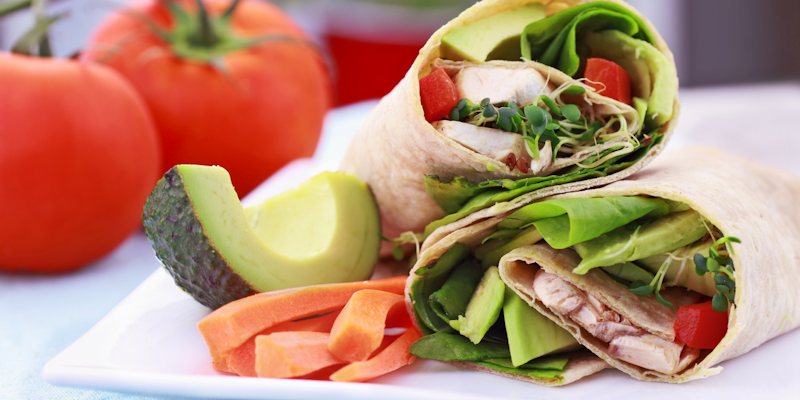A Vegetarian Lifestyle: Is it for You?
The vegetarian lifestyle trend has been growing steadily over the past few years. Not only are more people claiming to be vegetarians, but more vegetarian menu items are becoming available in restaurants, and more vegetarian restaurants are opening up throughout the country. Numerous vegetarian cookbooks are now available, and the availability of processed vegetarian foods that replace meat or other animal products is constantly growing.
People choose to become a vegetarian for many different reasons. Some people choose to stop eating meat for health and environmental reasons, while others are fearful of contracting diseases and illnesses, such as food poisoning. Some feel that eating meat or consuming dairy products is endorsing inhumane treatment to animals.
People who do consume meat also have their reasons for doing so, including convenience, taste, and an easier way to meet their nutrient needs.
There are actually several types of vegetarian diets:
- Fruitarian: consumes only raw or dried fruits, seeds, and nuts
- Lacto-ovo vegetarian: consumes dairy products, eggs, vegetables, grains, legumes, fruits, and nuts (excludes flesh and seafood)
- Lacto-vegetarian: consumes dairy products, vegetables, grains, legumes, fruits, and nuts (excludes flesh, seafood, and eggs)
- Macrobiotic diet: a vegan diet that progressively eliminates more and more foods. Ultimately, only brown rice and small amounts of water or herbal tea are consumed.
- Ovo-vegetarian: consumes eggs, vegetables, grains, legumes, fruits, and nuts (excludes flesh, seafood, and milk products)
- Partial vegetarian (semi-vegetarian): consumes seafood, poultry, eggs, dairy products, vegetables, grains, legumes, fruits, and nuts (excludes or strictly limits certain meats, such as red meats)
- Pesco-vegetarian: same as partial vegetarian, but eliminates poultry
- Vegan (strict vegetarian): consumes only food from plant sources (vegetables, grains, legumes, fruits, seeds, and nuts)
- Vegetarian: consumes plant-based foods and eliminates some or all animal-derived foods.
A large controversy that has always surrounded the vegetarianism lifestyle is the health aspect – is a vegetarian lifestyle really healthier than a meat-eater lifestyle? Studies show that both can be healthy, as long as meals are well-planned. For example, a vegetarian who consumes deep-fried vegetables, butter sauces, and sweets is not eating any healthier than somebody who consumes large amounts of high-fat meats.
Many people assume that vegetarian meals are lacking in protein. However, many plant-based foods, including grains (such as bread, cereal, pasta, and rice), nuts, beans, and tofu contain enough protein to meet the recommended requirements.
Lack of calcium is also considered to be a concern for those who don’t consume dairy products. However, calcium can be found in many non-dairy food items, including soy beverages, calcium-fortified food items and beverages (such as orange juice), and leafy green vegetables (such as broccoli and spinach).
Because meat is a main source of iron, zinc, vitamin D, and vitamin B12 for many people, some say that a vegetarian meal plan could also be lacking in these nutrients. However, plant-based based foods can meet these nutrient needs as well.
Some vegetarians feel the need to take supplements because they want to make sure their body is getting the necessary nutrients it needs; however, most healthy vegetarians do not need to take supplements if their meals are well-planned. Remember that a supplement is intended to supplement the diet, not serve as a replacement for food. Also understand that dietary supplements are not regulated by the FDA and therefore are not required by federal law to be tested for safety and effectiveness before they are marketed; therefore, the amount of scientific evidence available for various supplement ingredients varies widely.
Are you considering a vegetarian lifestyle? Because this is a major lifestyle change and therefore a difficult transition for many people, don’t make the transition too quickly. Start off slowly and be sure to experiment with different types of food before deciding if this is right for you. The internet is a great source of healthy vegetarian recipes, or try making up some of your own.



Pingback:Checking In With The Food Cop Corinne Kantor - CaitlinPickett.com